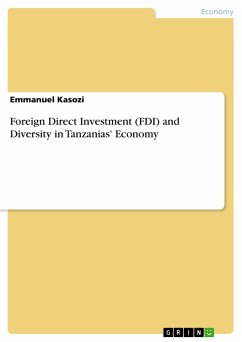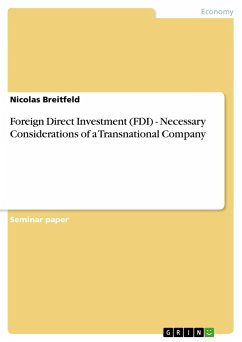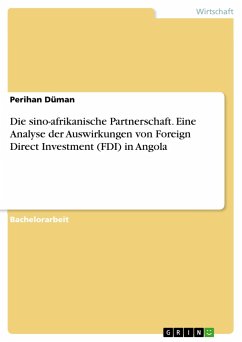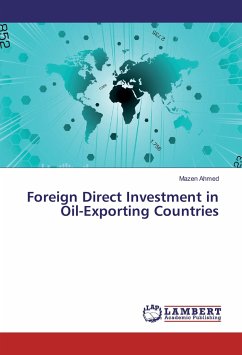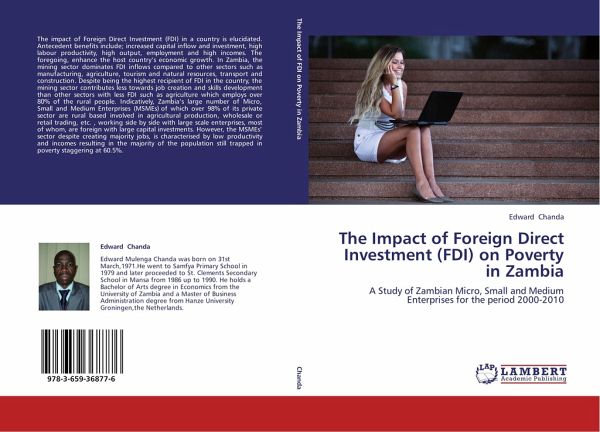
The Impact of Foreign Direct Investment (FDI) on Poverty in Zambia
A Study of Zambian Micro, Small and Medium Enterprises for the period 2000-2010
Versandkostenfrei!
Versandfertig in 1-2 Wochen
43,99 €
inkl. MwSt.

PAYBACK Punkte
22 °P sammeln!
The impact of Foreign Direct Investment (FDI) in a country is elucidated. Antecedent benefits include; increased capital inflow and investment, high labour productivity, high output, employment and high incomes. The foregoing, enhance the host country¿s economic growth. In Zambia, the mining sector dominates FDI inflows compared to other sectors such as manufacturing, agriculture, tourism and natural resources, transport and construction. Despite being the highest recipient of FDI in the country, the mining sector contributes less towards job creation and skills development than other sectors...
The impact of Foreign Direct Investment (FDI) in a country is elucidated. Antecedent benefits include; increased capital inflow and investment, high labour productivity, high output, employment and high incomes. The foregoing, enhance the host country¿s economic growth. In Zambia, the mining sector dominates FDI inflows compared to other sectors such as manufacturing, agriculture, tourism and natural resources, transport and construction. Despite being the highest recipient of FDI in the country, the mining sector contributes less towards job creation and skills development than other sectors with less FDI such as agriculture which employs over 80% of the rural people. Indicatively, Zambiäs large number of Micro, Small and Medium Enterprises (MSMEs) of which over 98% of its private sector are rural based involved in agricultural production, wholesale or retail trading, etc. , working side by side with large scale enterprises, most of whom, are foreign with large capital investments. However, the MSMEs¿ sector despite creating majority jobs, is characterised by low productivity and incomes resulting in the majority of the population still trapped in poverty staggering at 60.5%.







